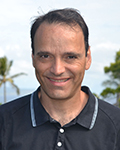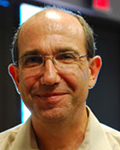Record Keeping and Data Management for High-Quality Science
- Featured in:
- SfN Annual Meeting Recordings ,
- Neuroscience Scholars Program ,
- Foundations of Rigorous Neuroscience Research
Mar 15, 2017
Proper record keeping and data management are critical components of scientific rigor and responsibility. This Short Course focuses on what all scientists should know:
- Basic principles and best practices
- Responsibilities as an investigator, grantee, and author
- Ways to manage these responsibilities during collaborations
- How funding agencies and journals address these issues when there are challenges around data integrity
Panelists will also explain data and resource sharing as it contributes to open science and field-wide efforts to enhance data reproducibility.
Read the accompanying Short Course syllabus here. For more resources on scientific rigor, browse the Neuronline Featured Collection, Promoting Awareness and Knowledge to Enhance Scientific Rigor in Neuroscience.
Speakers

Horacio de la Iglesia, PhD
Horacio de la Iglesia is a professor in the department of biology at the University of Washington. He finished his undergraduate studies in biology at the University of Buenos Aires in Argentina. He received his PhD in neuroscience and behavior at the University of Massachusetts, Amherst, where he studied the neuroanatomical interactions between the master circadian clock of mammals and the brain centers that control reproduction. de la Iglesia continued his research on the neural control of circadian rhythms as a postdoctoral fellow and an instructor in the laboratory of William Schwartz at the University of Massachusetts Medical School. He was also an instructor at Harvard University, where he taught a course on stem cells.

Ann M. Hammersla, JD
Ann Hammersla is the director of NIH’s Division of Extramural Inventions and Research Resources. Her current responsibilities include working with NIH’s extramural community to review NIH-wide extramural program announcements for intellectual property and data sharing issues and oversight and management of NIH extramural intellectual property compliance reporting of government-wide regulations that involve NIH, including Bayh-Dole oversight issues and research collaborations between NIH intramural and extramural communities. Hammersla also currently serves on NIH’s Scientific Data Counsel which has responsibility for NIH’s policies and implementation for sharing of data developed with NIH support. She has over 30 years of experience in the management, negotiation, and administration of technology transfer transactions and compliance programs for inventions, patents, data, and materials. Prior to joining NIH, Hammersla reviewed and managed conflict of interest programs, human subjects, and animal care regulatory and statutory compliance matters. Hammersla received her Bachelor’s Degree from the University of Rochester and Juris Doctor from Syracuse University.

Michael Kalichman, PhD
Michael Kalichman has taught research for over 25 years and is the current and founding director of the University of California, San Diego’s Research Ethics Program. He is also the founding director of the San Diego Research Ethics Consortium since 2006, and the Ethics Service for the NIH CTSA-funded Clinical and Translational Research Institute since 2010. In addition, Kalichman is the co-founding director for the Center for Ethics in Science and Technology since 2004. In 1999, with support from the Office of Research Integrity, he created one of the first online resources for the teaching of research ethics, Resources for Research Ethics Education. He leads NIH- and NSF-funded research on the goals, content, and methods for teaching research ethics. Internationally, he has had lead roles in a collaboration between the AAAS and the China Association of Science and Technology (CAST), co-chairing the working group for RCR education at the 2010 Singapore meeting of the World Conference on Research Integrity, and assisting Korean leaders in setting a national research ethics agenda. Kalichman trained in engineering and neuropharmacology.

Maryann Martone, PhD
Maryann Martone is a professor emerita at the University of California, San Diego, where she maintains an active laboratory. She started her career as a neuroanatomist, specializing in light and electron microscopy, but her research for the past 15 years has focused on neuroinformatics. She led the Neuroscience Information Framework (NIF), a national project to establish a uniform resource description framework for neuroscience, as well as the NIDDK Information Network (dknet). She is the current Chair of the Governing Board for the International Neuroinformatics Coordinating Facility and a founder of SciCrunch, a technology start creating tools to help publish reproducible science.
4 of 5 articles left
Login
or
Become a Member
to unlock content



.png?h=1763&w=3125&la=en&hash=B2439C2768576BED6405672E5CD5CF8CB1AA375F)




